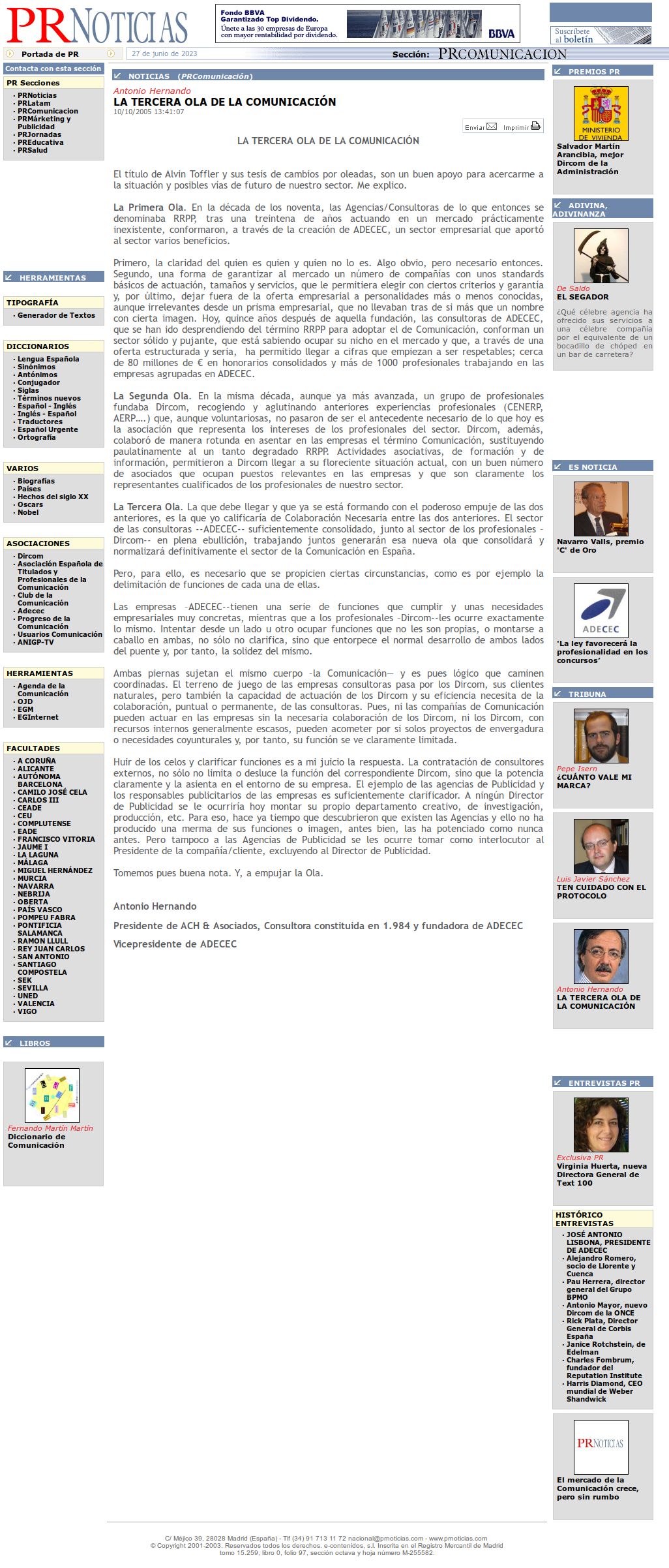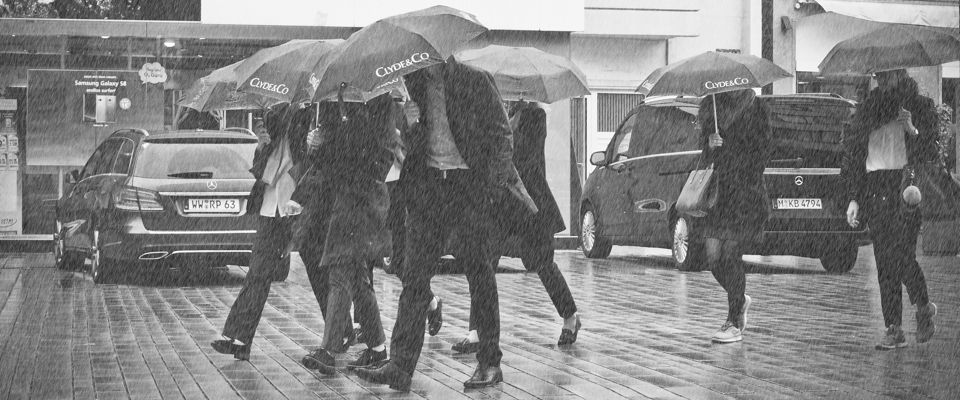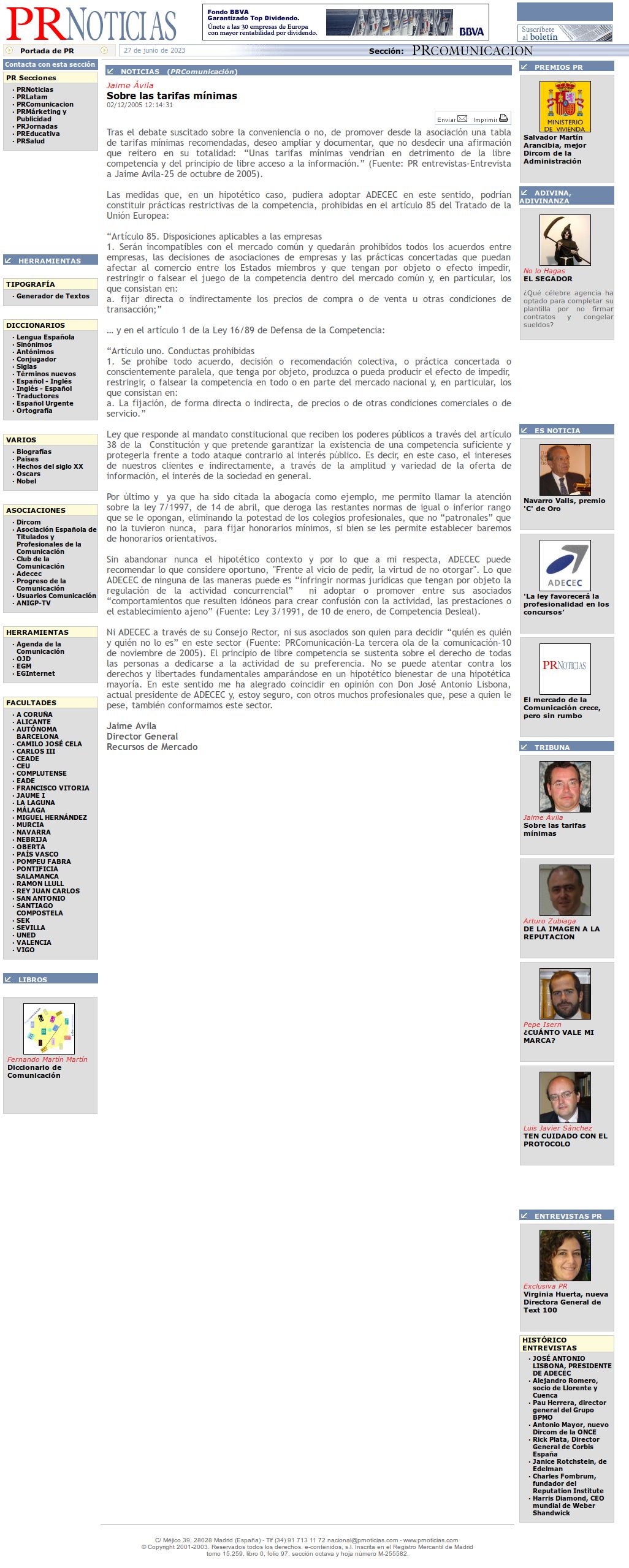Following the debate on whether or not it is advisable for the association to promote a table of recommended minimum tariffs, I would like to expand on and document, not contradict, a statement that I reiterate in its entirety: “Minimum tariffs would be detrimental to free competition and the principle of free access to information” (Source: PR entrevistas-Entrevista a Jaime Avila-25 October 2005). (Source: PR interviews-Interview with Jaime Avila-25 October 2005).
The measures that ADECEC could hypothetically adopt in this sense could constitute restrictive practices of competition, prohibited by Article 85 of the Treaty on European Union:
“Article 85 – Provisions applicable to undertakings
1. All agreements between undertakings, decisions by associations of undertakings and concerted practices which may affect trade between Member States and which have as their object or effect the prevention, restriction or distortion of competition within the common market, and in particular those which consist in:
a. directly or indirectly fix purchase or selling prices or any other trading conditions;”.
… and Article 1 of Law 16/89 on Competition Defence:
“Article one. Prohibited conduct
1. Any collective agreement, decision or recommendation, or concerted or consciously parallel practice, which has as its object, has or may have the effect of preventing, restricting or distorting competition in the whole or part of the national market, and in particular those which consist of:
a. The fixing, directly or indirectly, of prices or other commercial or service conditions”.
This law responds to the constitutional mandate given to the public authorities through article 38 of the Constitution, which aims to guarantee the existence of sufficient competition and to protect it against any attack contrary to the public interest. That is to say, in this case, the interests of our clients and indirectly, through the breadth and variety of information on offer, the interests of society in general.
 Finally, and since the legal profession has been mentioned as an example, I would like to draw attention to Law 7/1997, of 14 April, which repeals the remaining regulations of equal or lower rank that oppose it, eliminating the power of the professional associations, not “employers” associations, which never had it, to set minimum fees, although they are allowed to establish indicative fee scales.
Finally, and since the legal profession has been mentioned as an example, I would like to draw attention to Law 7/1997, of 14 April, which repeals the remaining regulations of equal or lower rank that oppose it, eliminating the power of the professional associations, not “employers” associations, which never had it, to set minimum fees, although they are allowed to establish indicative fee scales.
Without ever leaving the hypothetical context and as far as I am concerned, ADECEC can recommend whatever it deems appropriate, “Against the vice of asking, the virtue of not granting”. What ADECEC can in no way “infringe legal rules aimed at regulating the competitive activity” nor adopt or promote among its members “behaviours that are suitable to create confusion with the activity, services or establishment of others” (Source: Law 3/1991, of 10 January, on Unfair Competition).
Neither ADECEC, through its Governing Council, nor its associates are the ones to decide “who is who and who is not” in this sector (Source: PRComunicación-La tercera ola de la comunicación-10 November 2005).
The principle of free competition is based on the right of all persons to engage in the activity of their choice. Fundamental rights and freedoms cannot be undermined on the grounds of the hypothetical welfare of a hypothetical majority. In this sense, I was happy to agree with José Antonio Lisbona, the current president of ADECEC and, I am sure, with many other professionals who, despite whoever it may concern, also make up this sector.
Jaime Avila
General Director
Recursos de Mercado
Published on 2 december 2005 by:






